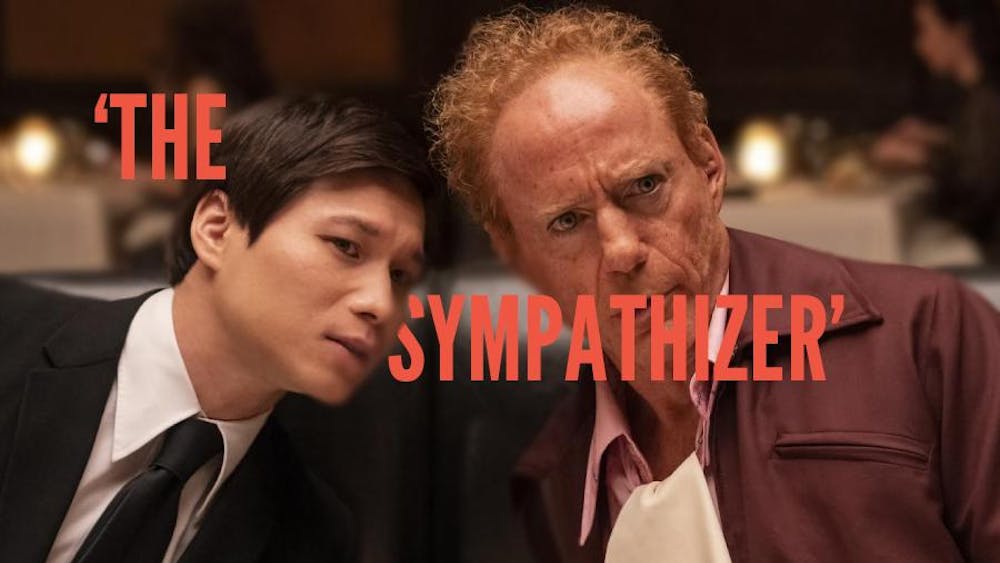
Indie-rock stalwarts The National are characterized by a reliable consistency. The band’s cerebral and often existential songs about middle-class adult concerns often earns it the “dad rock” label, aided by the fact that ot sound has remained largely unchanged over the past decade. Remarkably, their critical reception is wildly consistent as well, with their past four albums earning Metacritic scores over 80. The band’s new documentary “Mistaken for Strangers” is a film about a disruption to that consistency — the tumultuous sibling dynamic lurking under every family’s perfectly projected facade.
The National has two sets of brothers — Bryan and Scott Devendorf and twins Aaron and Bryce Dessner — and lead singer Matt Berninger let his younger brother Tom join the crew as an assistant tour manager.
Tom follows The National on its 2010 tour, which saw the group sell out Radio City Music Hall and play a rally with President Obama, and begins filming footage for a documentary whose concept is largely undefined. “Do you have any kind of organization and plan for this film?” Matt asks Tom early in the documentary. “You have to come up with some kind of idea for this movie.”
For those expecting a band profile or concert film, “Mistaken for Strangers” is neither of those things. Save for the performance of “Terrible Love” during the film’s conclusion, footage from the band’s performances are shown only in fragmented snippets. Early on, Tom turns the camera on himself, filming himself eating French fries in a Parisian hotel room while Matt gives a phone interview in the background. This sets the course for the documentary, with the band serving as a background for a profile of a flawed younger brother overshadowed by his successful older sibling. “Having Matt as my older brother sucks because he is a rockstar and I am not,” Tom confesses to the camera. “And it has always been that way.”
Tom is a compelling subject for all the reasons he frustrates his older brother. His easygoing personality constantly irritates Matt, as he desperately craves a flashy rockstar tour experience completely contrary to The National’s ethos. In one of the film’s funniest scenes, Tom floats on a shark inflatable in a Los Angeles hotel’s infinity pool and screams “Hey Moby!” at what he believes is the electronic artist’s house. The ludicrous questions he asks in interviews — i.e. ”Do you have your wallets on stage with you?” or “Where do you see The National in 50 years?” — baffle the band’s members and reveal Tom’s disinterest in the band as a subject.
In contrast with the responsible Matt, Tom is depicted as relatively immature and unambitious. He constantly neglects his responsibilities as a member of the crew, which include checking the backstage food spread is correct and assembling the band before show time. He is left behind by the tour bus at one point and is eventually fired by the band’s tour manager. “Matt was a lot easier to raise than you,” Tom’s mother tells him. “You always quit things.”
As Tom becomes frustrated trying to determine the direction of the documentary, he tearfully films himself admitting, “I just want to make something good for [Matt], as well as myself.” While it is a low-stakes conflict, Tom’s unguarded vulnerability and focus on universal sibling conflicts make for a surprisingly engaging film. In an interview with The Dissolve, Tom explains that his “directing credit was part of the narrative. For me, it was part of the movie itself. … The movie is only complete when someone is sitting down watching it.” Completing the film is framed as a redemptive moment for Tom, a necessary victory for someone constantly critiqued by his seemingly perfect older brother. Even for non-fans, “Mistaken for Strangers” is well worth a watch, a fascinating subversion of rock documentaries grounded in familial relationships, meta commentary on filmmaking and affirming the importance of small victories in life.













